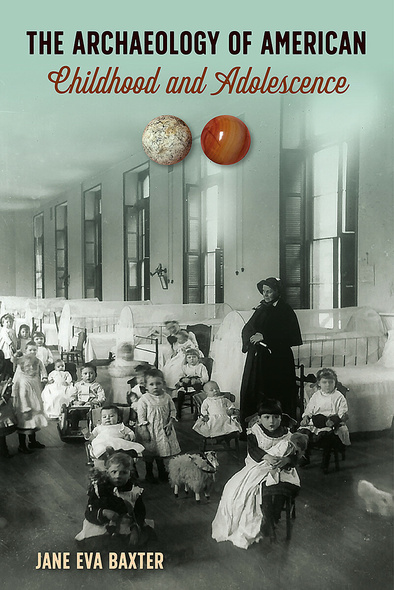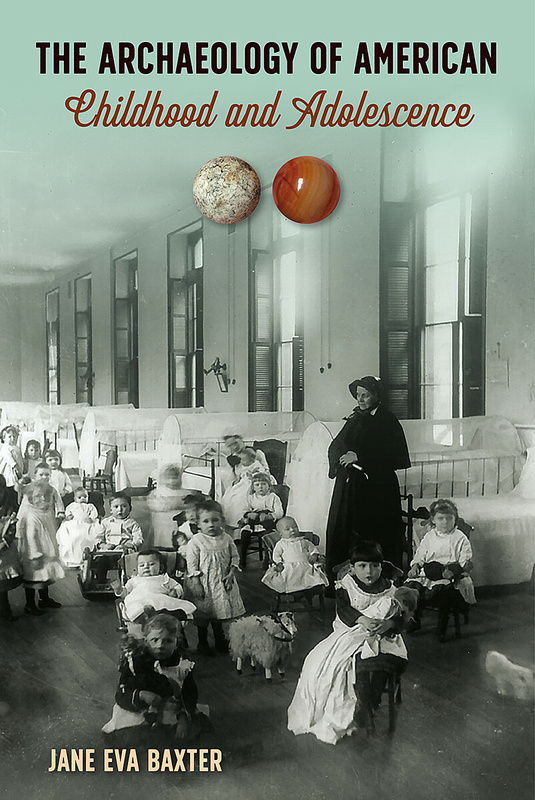The Archaeology of American Childhood and Adolescence
This is the first book to focus on archaeological evidence from the recent past related to children, childhood, and adolescence. Jane Baxter, a foremost authority on the archaeology of historic American childhood, synthesizes the growing variety of ways researchers have been approaching the topic, guiding readers through an abundance of current data on the experiences of children in American history. Baxter begins with a historical overview of the changing views on child-rearing and definitions of childhood from colonial times to the present, contextualizing the archaeological evidence used to piece together the lived experiences of children. Next, she examines archaeological studies of children from household environments—including farms, plantations, urban settings, industrial communities, and military sites—which offer the opportunity to explore the roles children played at home, at times making essential contributions for the survival of their families. She also looks at studies from institutions where children have resided, such as orphanages, poorhouses, asylums, Japanese internment camps, and Indian boarding schools. Children placed in these institutions were subject to control by adults charged with their care, and the disciplinary policies administered within them demonstrate prevailing ideals on how children should be cared for. Additionally, Baxter includes research on children buried in cemeteries, showing what their skeletal remains and gravemarkers can reveal about the importance of children in past communities. Baxter concludes by featuring studies of present-day childhood, pointing out how today’s physical environments and material objects reflect ideas about children that come from a long historical legacy. She argues that the history of America can be understood through the stories of the nation’s children—and that with the unique insights provided by archaeological evidence, these stories can be more fully told. A volume in the series the American Experience in Archaeological Perspective, edited by Michael S. Nassaney
An elegantly written and comprehensive discussion of children in the United States from the first settlers through the present. Baxter effectively makes the case that historical analyses need to include discussions of childhood and that archaeological evidence makes distinct, important contributions to the narrative.’—Kathryn A. Kamp, editor of Children in the Prehistoric Puebloan Southwest ‘Shows how the study of childhood, when refracted through the lens of material culture studies, can not only shed light on cultural constructions of it in the past but also give context to how childhood is perceived in the present.’—Stacey Lynn Camp, author of The Archaeology of Citizenship
Jane Eva Baxter, associate professor of anthropology at DePaul University, is the author or editor of several books, including The Archaeology of Childhood: Children, Gender, and Material Culture.





